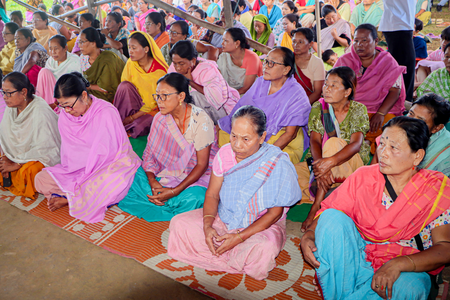
New Delhi, June 4 (IANS) The Delhi High Court has ordered the re-admission of a Delhi University (DU) law student, previously barred from continuing his course due to attendance shortages stemming from a medical condition.
The student, who suffers from psoriasis, had fallen short of the university’s mandatory attendance requirements and was instructed to reapply for admission by retaking the entrance exam.
Challenging this decision, he filed a writ petition, which was initially dismissed by a single-judge bench.
However, a division bench of Justices Rajiv Shakdher and Amit Bansal overturned this decision, saying that the university failed to differentiate between students who miss classes for genuine reasons and those who do so without valid explanations.
“The University has adopted an approach best described as one size fits all,” the court remarked, criticising its uniform policy towards all students irrespective of their reasons for attendance shortfalls.
It also noted the Bar Council of India’s (BCI) stance, which supported the re-admission of students who miss classes due to legitimate medical reasons.
The BCI’s affidavit said that once a student is admitted to pursue legal education, their admission should not be cancelled if they fail to meet attendance requirements for genuine reasons.
In its defence, the university argued that psoriasis, a non-contagious disease, should not have prevented the student from attending classes.
However, the court recognised the seriousness of the condition, noting its potential to cause significant discomfort and affect vital organs.
“Psoriasis is a skin disease which often takes grotesque forms, causing deep embarrassment and discomfort. Itching is a peculiar feature of the disease, leading to extreme discomfort,” it stated, referencing the student’s medical documentation and photographs submitted as evidence.
It further criticised the university for trivialising the student’s condition by questioning his choice of a homoeopathic doctor and showing disbelief in his illness claim. The judges took judicial notice of the effectiveness of homoeopathic treatments for certain skin diseases, noting the university’s failure to investigate the student’s claims properly.
Additionally, it rejected the university’s argument that it lacked the power to grant re-admission to a student detained in the first term.
Citing relevant provisions of the University Ordinance, the court clarified that the university could re-admit students who had genuine reasons for their absence, including illness. The relevant provision, Article 5(b) to Ordinance IV, states: “A student of the University who was not allowed to appear in the examinations due to shortage of attendance will be re-admitted to the class he studied last in his College/Department, within the prescribed period of registration.”
Based on these findings, the court allowed the student’s appeal, quashed the single-judge decision, and directed Delhi University to re-admit the student for the upcoming academic year (2024-2027 batch).
–IANS
spr/vd




